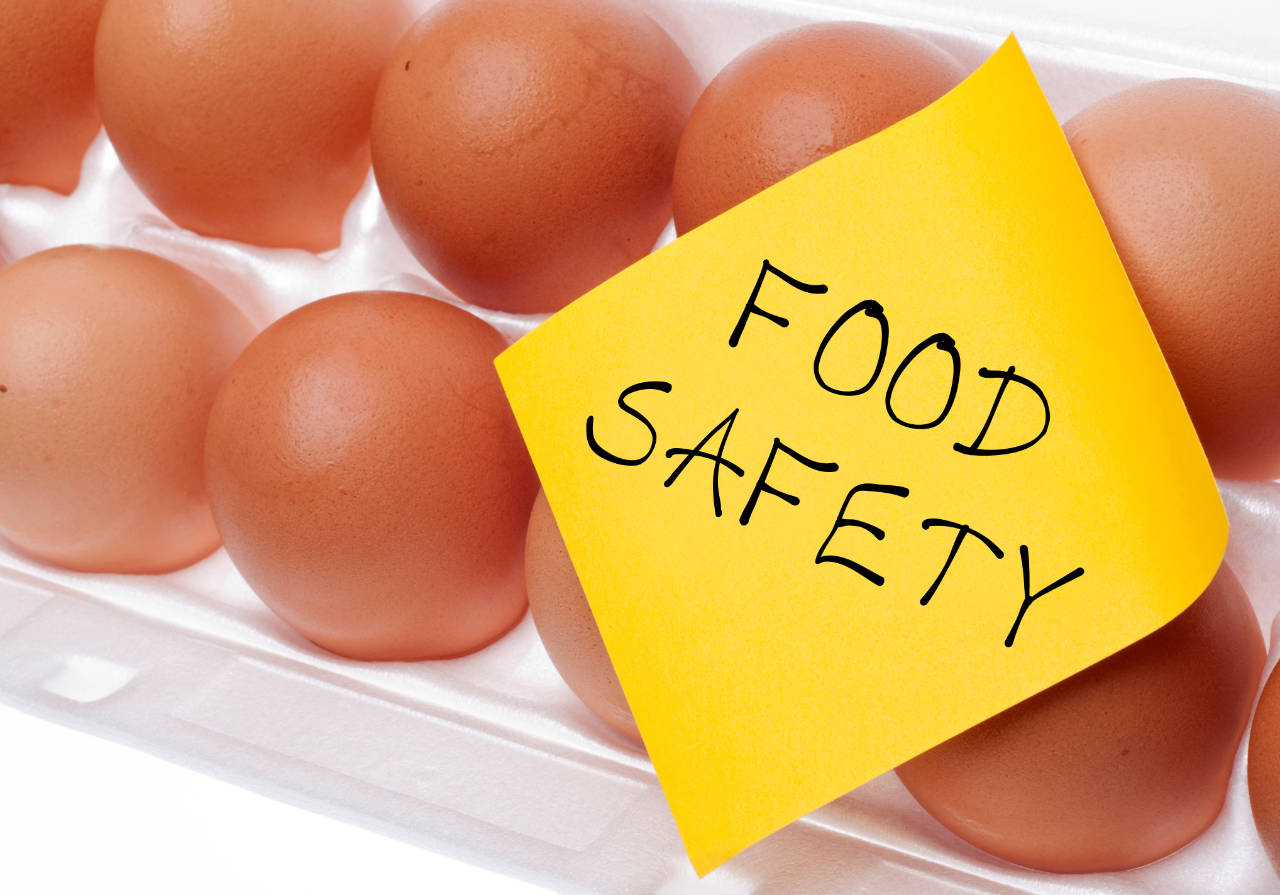
For any employee who handles food, appropriate food safety training is not only best practice, but also a legal requirement. Whether working in a restaurant kitchen or a food manufacturing facility, a lack of proper training can result in a serious incident.
With 2.4m cases of food poisoning in the UK each year, food safety training is essential. Everyone involved in manufacturing, preparing, and serving food must understand food safety hazards and allergens and know how to prevent contamination.
The best way to safeguard the health of consumers and employees, and your organisation’s reputation is by offering appropriate training that will adequately cover all the food safety basics, including controlling food safety hazards, best practices, and the law.
Praxis42 can assist by providing advice and guidance through a food hygiene audit, as well as through our eLearning food safety training modules.
What does food safety training cover?
The specific content of a food safety training course is dependent on the level, but in general, it should cover safe practices in the preparation, cooking, and handling of food.
Subjects covered by a food safety course include helping employees understand food safety terminology and food safety regulations, recognising food safety hazards, the importance of high temperatures for controlling bacteria, cleaning, allergens, pest controls, contamination and storing food correctly.
A food safety course should also teach the importance of good cleaning practices and, if relevant, the principles of Hazards Analysis Critical Control Points (HACCP) as it applies to food safety.
There are three recognised levels of food safety training:
Level one
This level provides general training aimed at ensuring the safe preparation, serving and delivery of low-risk and wrapped food. It is particularly relevant to waiting staff and food delivery staff.
Level one training provides employees with an essential foundation in food safety. They will recognise the types of food safety hazards and understand best practices for safely handling food with a lower risk of contamination.
Level two
Level two training is designed for those who are directly involved in the preparation and service of food to consumers.
This level is particularly relevant to chefs, kitchen assistants and bar staff who prepare and serve food and drinks. It delves deeper into food safety practices and principles, providing a more comprehensive understanding of how to maintain safe food handling practices in a variety of culinary settings.
Level three
Training at this level is designed for food supervisors and managers in businesses that prepare and serve food directly to consumers. It is relevant to head chefs, general managers, and owners of mobile catering businesses.
Level three training encompasses advanced concepts in food safety management and equips individuals with the knowledge and skills required to ensure that their establishments meet the highest standards of food safety and hygiene. It involves a deeper understanding of HACCP principles and comprehensive management of food safety protocols.
Why is food safety training important?
Legislation
Regulations and guidance require that food handlers involved in the food supply, production and service chain are supervised, instructed, and trained in food hygiene measures.
This means that all employees who come into contact with food must understand why food safety is essential and know how to do their job safely. They must receive training that’s relevant to their job and the type of food that they handle.
Failure to comply with UK food safety rules can lead to serious consequences for organisations. Customers or employees may become ill or even die after eating contaminated food, and the organisation may be hit with unlimited fines, civil claims or be subject to prohibition to operate.
In addition, the damage to an organisation’s reputation can be long lasting and in extreme cases, severe breaches of food safety regulations can lead to company closures.
Benefits to your organisation
The most important benefit of food safety training is that it protects your employees and customers. Maintaining regular food safety training will also help keep your organisation compliant with the law.
Other significant benefits of food safety training are:
- Reducing food waste. Food will be less likely to go out of date if stored and handled correctly.
- Improving the efficiency of employees. Well-trained employees feel more confident in their roles leading to higher job satisfaction and better performance.
- Building a positive reputation (and trust) with employees and customers. This comes from knowing your organisation is a safe environment.
- Saving significant costs. Food recalls, legal action and loss of customers can have a huge financial impact.
- Improving customer satisfaction and loyalty. Consistency in food preparation and quality leads to customer satisfaction and loyalty. Businesses who invest in high-quality food safety training may gain a competitive advantage.
Praxis42 Food Safety course
Our IOSH Approved Food Safety Training course equips employees with the essential knowledge and skills they need to handle and prepare food safely. It provides practical guidance on maintaining safe practices during food preparation, cooking, and handling.
The course is delivered online and follows the principles of Food Safety Level 2, which includes the critical concepts of Hazard Analysis and Critical Control Points (HACCP).
Participants don’t need any prior knowledge and they will gain a deep understanding of the key principles and practices required to maintain food safety.





